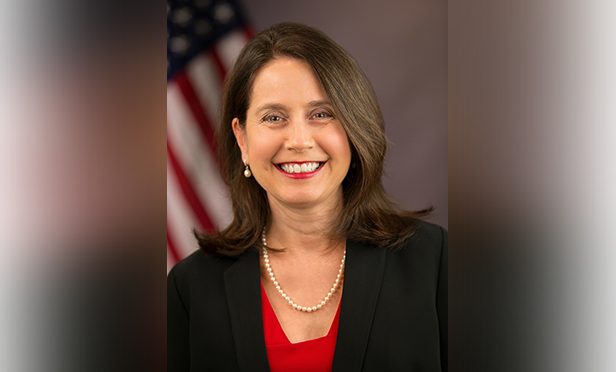
 SEC Commissioner Kara Stein.
SEC Commissioner Kara Stein.
Commissioner Kara Stein of the Securities and Exchange Commission called on President Donald Trump to issue an executive order to create a working group on retirement security during a recent speech.
"Today, we as a nation face a fast-approaching crisis — an aging population without sufficient resources to fund a secure retirement. This crisis is a collective problem that, unless solved, will cause many individual tragedies," she said during an event hosted by The Center on Regulation and Markets at Brookings about retirement security.
Stein notes that the SEC's mandate "only encompasses a small portion of the larger retirement issue" because the regulator deals with individuals who "already have enough resources to save and invest." This is why Stein called for a collaboration with other government agencies and a wide range of people.
"The working group would assemble regulators from the Departments of Labor, Treasury, Commerce, and others," she said. "It would also bring together major market participants, such as asset managers, exchanges, broker-dealers, and others to determine private-sector solutions wherever possible."
According to Stein, the purposes and functions of the group would be to enhance the state of retirement security in the United States by making recommendations regarding legislative, regulatory, or other changes.
"Both the government and the private sector have work to do to prevent a potential crisis that has many causes, but also many possible solutions," she said.
In her speech at Brookings, Stein also outlined several ways that the SEC itself can help with retirement security.
Educating Investors
One way is to help educate investors. Stein said that the SEC should work with other agencies to create a model curriculum for schools.
"We know that much of the education people receive about investing comes once they have enough money to invest," she said. "But if we are truly to make a difference, financial literacy education needs to start much earlier."
Stein suggested that the SEC could sponsor contests — similar to spelling bees — for middle school and high school students about investing in their future. She also suggested creating an app that teaches kids and adults how to invest.
Enhancing Investment Advice
Another way is to enhance investment advice by addressing the differing standards of conduct applicable to investment professionals in a way that protects investors.
In a recent survey conducted by SEC staff, most investors assume that someone who is giving them advice has to put the investor's interests first. However, that is not always the case.
According to a 2015 Council of Economic Advisers report that was used by the Obama administration to justify its now-defunct fiduciary rule, retirement savers lose about $17 billion to conflicted advice each year.
Stein called this "a staggering sum that has real-world consequences for retirees," and she said that the SEC must take action.



